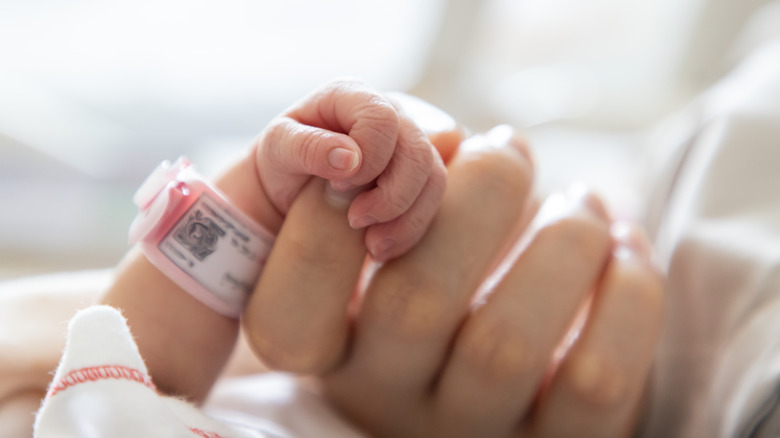Surrogacy Attorney Evie Jeang Discusses The Legal Risks Of Surrogate Parenting - Exclusive
The road to surrogate parenting is rarely ever smooth. Making the decision to have a child via a surrogate requires a lot of careful deliberation. Once the decision is made, the real work begins: The process is complex and involves a lot of moving parts.
"Surrogacy is complicated, unpredictable, and involves many players," attorney and surrogacy advocate Evie Jeang told Health Digest. "You can try and plan for everything, but somewhere along the way, you're going to come across something unplanned. You have lawyers, doctors, clinics, egg donor agencies, sperm donor agencies, surrogate agencies, OB-GYNs, therapists [and] psychologists, etc. — all involved in your surrogacy adventure. That's a lot of hands in the pot."
As if the logistical and emotional pressure of trying to identify the right surrogate mother and sperm donor for one's child weren't enough, Jeang warned, there are also a host of possible legal complications. In an exclusive interview, Jeang discussed some of these risks and how potential parents can protect themselves.
Laws regarding surrogacy vary from location to location
In her California-based legal practice, Ideal Legal Group, as well as her consulting service, Surrogacy Concierge, Evie Jeang specializes in helping potential parents navigate the surrogacy process. Because of her own background and life experience — she's both a proud Taiwanese American and a mother of a child born to a surrogate — she's found a professional niche advocating for aspiring parents from Asian countries. In much of Asia, she explained, the simple fact of being single or gay is a legal barrier to surrogacy.
"Outside of the United States, in places such as China, there is little recognition for same-sex marriages or women's rights," she explained. "As a result, I've had a lot of overseas clients retain me to pursue surrogacy here in California. We're considered the most open and favorable state for gestational surrogacy. Our laws are very fair and protective of all parties involved in the process."
But the COVID pandemic threw yet another legal wrench into the surrogacy process for overseas parents. "Clients could not come and retrieve their babies that were being delivered without the risk of not being allowed back into their home country," Jeang recalled. "During the pandemic, my client's surrogate gave birth to a baby girl, and my client tried to enter the United States three times. She was sent back each time by our Customs and Border Protection when she landed in Los Angeles. It was crazy!"
Every step of the surrogacy process has legal pitfalls
Because the surrogacy process is so complicated both logistically and medically, the potential for mishaps (and resulting lawsuits) is great. "Over the years, I've seen so many more surrogacy-related lawsuits — babies swapped at birth and given to the wrong intended parents, IVF doctors messed up and fertilized the wrong embryo, surrogates giving birth and disappearing with the baby ... There's so much more," Evie Jeang said. "All these incidents would take months — sometimes years — to be resolved through the legal system."
So how can would-be parents protect themselves? While Jeang warns there are never any guarantees the surrogacy process will go as planned, potential parents can reduce their risks by doing their homework. "Do your due diligence and research everything!" she said. "You must be able to differentiate whether a person is trying to help you or trying to scam you."
In addition, every potential parent should have an experienced attorney in their corner during the process. "I cannot stress enough the importance of seeking legal advice from an attorney who has been practicing surrogacy law or has relevant experience in the field. This is greatly and highly recommended," she said.
For more information, please visit https://surrogacyconcierge.com.



